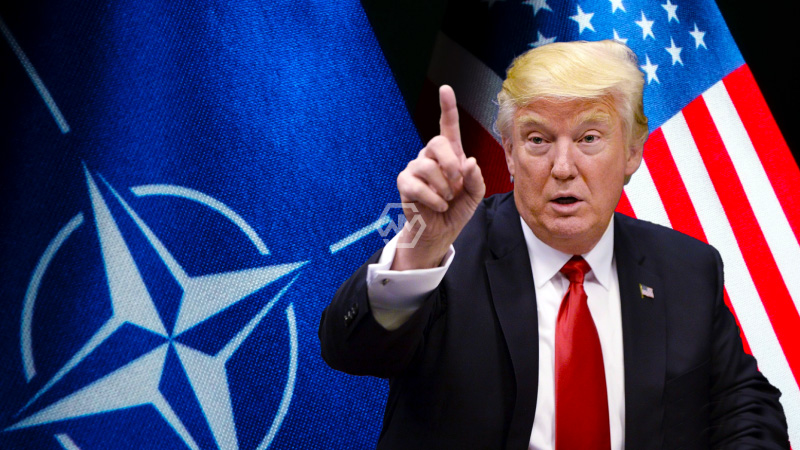- Trump plans to overhaul U.S. involvement in NATO, demanding increased financial contributions from allies.
- He suggests deploying U.S. troops to Mexico to combat drug cartels, citing national security concerns.
- His foreign policy aims to prevent global conflicts like World War III by reducing U.S. military entanglements abroad.
Donald Trump has made it clear that, should he win a second term in 2024, he would take a radically different approach to U.S. foreign relations.
He has long criticized NATO, particularly the unequal financial contributions of its members, and has hinted at reducing U.S. involvement if other countries do not pay their fair share.
A Bold Foreign Policy Shift: Trump’s NATO Plans and Mexico Strategy
In addition to rethinking NATO, Trump has proposed a bold move to deploy U.S. troops to Mexico to fight drug cartels, a move that could strain U.S.-Mexico relations. His broader foreign policy aims to prevent World War III by avoiding entanglement in prolonged international conflicts, a hallmark of his “America First” agenda. Trump’s strategy emphasizes unilateral action and prioritizing domestic interests over global obligations.
Trump has also proposed sending U.S. troops to Mexico to combat drug cartels. This unconventional strategy, driven by concerns over the opioid crisis and illegal immigration, could dramatically alter U.S.-Mexico relations. Though his plan highlights the urgency of addressing cartel violence, deploying military forces on foreign soil without consent may provoke backlash both domestically and abroad.
Beyond his specific plans for NATO and Mexico, Trump’s foreign policy is marked by a desire to avoid the prolonged conflicts that have defined recent U.S. military involvement. He has been vocal about the need to steer clear of unnecessary wars and has consistently criticized the U.S. for acting as the world’s policeman. This stance reflects his broader effort to put “America First” and prioritize national interests over international engagements.
In a broader context, Trump’s strategies point to a potentially more isolationist U.S. foreign policy. By focusing on reducing military commitments abroad, he aims to avoid entanglements that could lead to large-scale global conflicts, such as World War III. His approach signals a shift from traditional U.S. foreign policy, which has long been centered around alliances and global leadership.
Trump’s foreign policy vision represents a significant departure from traditional U.S. practices, with its focus on unilateral actions and prioritization of national interests. His proposals for NATO, Mexico, and avoiding global conflicts suggest a future where the U.S. may take a step back from its long-standing role as a global leader, focusing more on domestic security and financial balance.
“NATO is obsolete. It is designed many, many years ago. It wasn’t designed for terrorism.” — Donald Trump, reflecting his views on rethinking NATO’s role.



